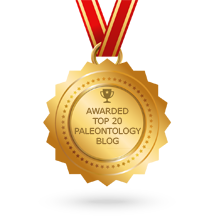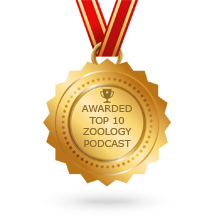Episode 111: Diversity in Palaeontology
Palaeontology is not known for being a very diverse science. Looking around the members at any given conference dinner is a pretty telling tale. The stereotype of white, rugged, cowboy-types can be prevalent, and societies such as the Palaeontological Association have been investigating different aspects of diversity in palaeontology through studies and spotlights on diversity.
In this episode, in conjunction with the Society of Vertebrate Paleontology (SVP), we investigate issues of diversity in palaeontology, through interviews with Jann Nassif (PhD student at Ohio University, USA) on being transgender in palaeontology; Professor Taissa Rodrigues (Universidade Federal do Espírito Santo, Brazil) and Dr Femke Holwerda (Dr Betsy Nicholls Postdoctoral Research Fellow at the Royal Tyrrell Museum of Palaeontology, Canada) about women in palaeontology; and Gabriel-Philip Santos (Collections Manager and Outreach Coordinator at the Raymond M. Alf Museum of Paleontology at The Webb Schools) about racial diversity. We also spoke with Professor Jessica Theodor (University of Calgary), the Vice President of SVP about what they are doing to increase diversity and address these issues. This episode was recorded in 2019 at the SVP meeting in Brisbane, Australia, but for several reasons has taken us a little while to complete. Given the current discussions and anti-racism activism going on around the world, this is an ideal time to reflect on some of the issues within our science and the ways in which they are being addressed.
Thank you to the Society of Vertebrate Paleontology for cooperating with us and assisting with this interview, and to our interviewees for talking about some difficult topics.
Although this episode focuses on SVP, this is a palaeontology-wide issue. We know that some people will respond negatively to this episode, but it is something that we consider to be important and integral to our science. Discrimination is never ok, and diversity ultimately makes science better. We pledge to interview people from more diverse backgrounds moving forward, and to help amplify their voices.











Some changes are visible in the SVP membership by country of residence between 2006 and 2018. Primarily, a decrease in the percentage of North American members overall can be accounted for in the increase of all other regions other than Central/South America. These data come from the 2019 SVP annual membership report.
Thank you to the Society of Vertebrate Paleontology, for cooperating with us and assisting with this interview, and to our interviewees for talking about some difficult topics.

















